Le Danemark et TradeMark Africa signent un nouveau partenariat pour transformer le commerce et stimuler une croissance résiliente en Afrique
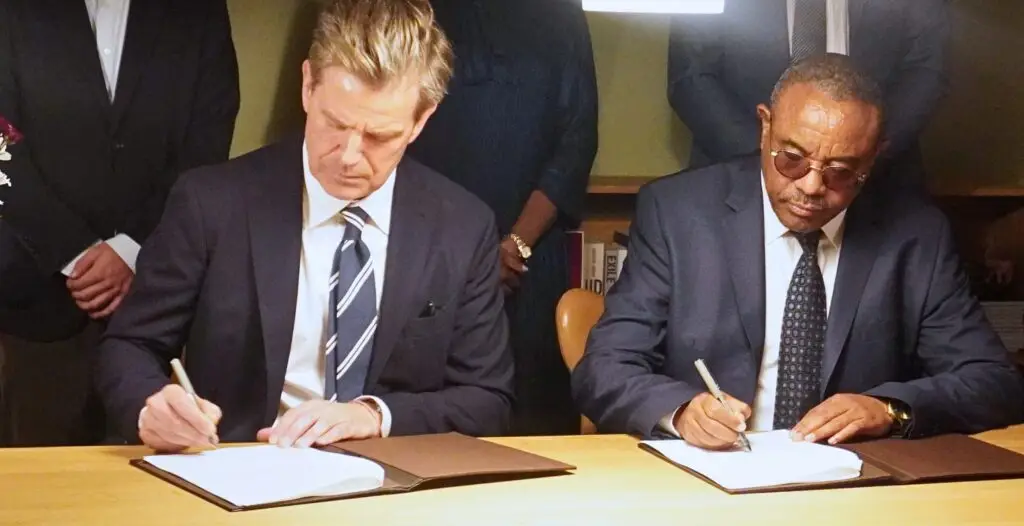
Nairobi, le 08 décembre 2025 – Le Danemark et TradeMark Africa (TMA) ont signé un nouveau partenariat quinquennal d’une valeur de 200 millions de couronnes danoises (30 millions de dollars) afin de renforcer le commerce durable, efficace et inclusif à travers le continent africain. Cet accord lance le programme « Sustainable Inclusive Trade in Africa » […]
Denmark and TradeMark Africa sign new partnership to transform trade and drive resilient growth in Africa

TMA Board Chair and former Prime Minister of Ethiopia, H.E. Hailemariam Desalegn Boshe, and the Danish Ambassador to Kenya, H.E. Stephan Schønemann, sign the agreement. Nairobi, 8 December 2025 – Denmark and TradeMark Africa (TMA) have signed a new five-year partnership worth DKK 200 million ($30 million) to strengthen sustainable, efficient and inclusive trade across […]
TMA renforce sa présence en Afrique australe avec la réunion du comité de surveillance de Zambie

TradeMark Africa a franchi une étape décisive vers le sud cette semaine à Lusaka, en organisant la deuxième réunion du Comité national de surveillance de la Zambie, qui marque un tournant dans l’ancrage de l’organisation en Afrique australe et l’établissement de son bureau à Lusaka. Présidée par Mme Lillian S. Bwalya, secrétaire permanente au commerce, […]
La CEDEAO accueille la Communauté de l’Afrique de l’Est au Ghana dans le cadre d’un apprentissage entre pairs aboutissant à des mesures visant à renforcer les normes et les systèmes commerciaux le long du corridor Abidjan-Lagos.
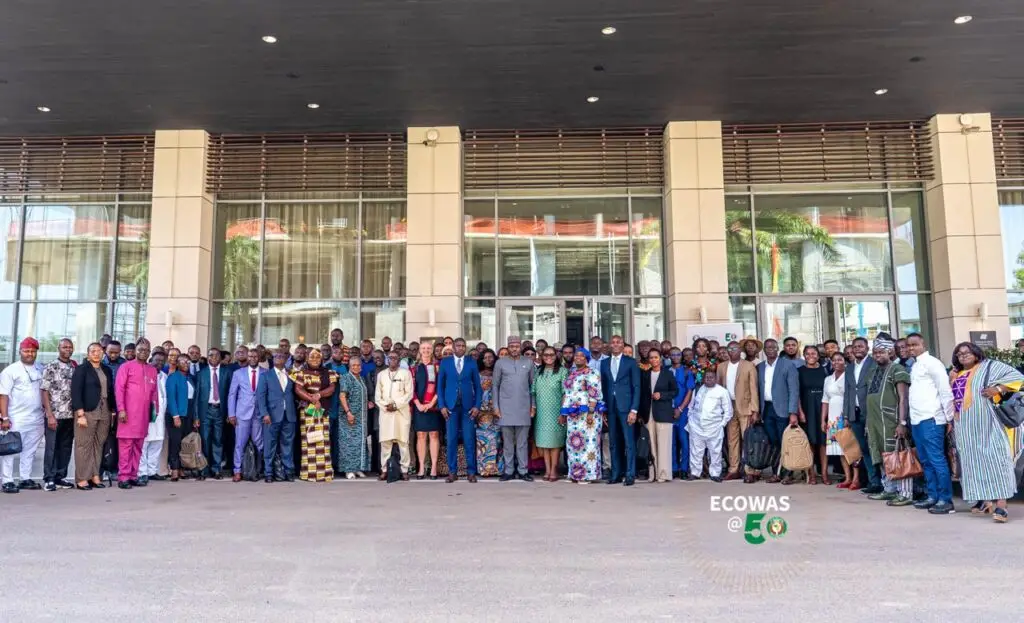
La Commission de la CEDEAO et TradeMark Africa, avec le soutien du gouvernement britannique par l’intermédiaire du Bureau des affaires étrangères, du Commonwealth et du développement (FCDO), ont organisé le Forum sur les normes sanitaires et phytosanitaires (SPS) et les obstacles techniques au commerce (OTC) du corridor Abidjan-Lagos à Accra, au Ghana, afin d’aborder les […]
TradeMark Africa and UMAP-Ghana Sign MoU to Strengthen SPS Systems and Facilitate Trade Across ECOWAS
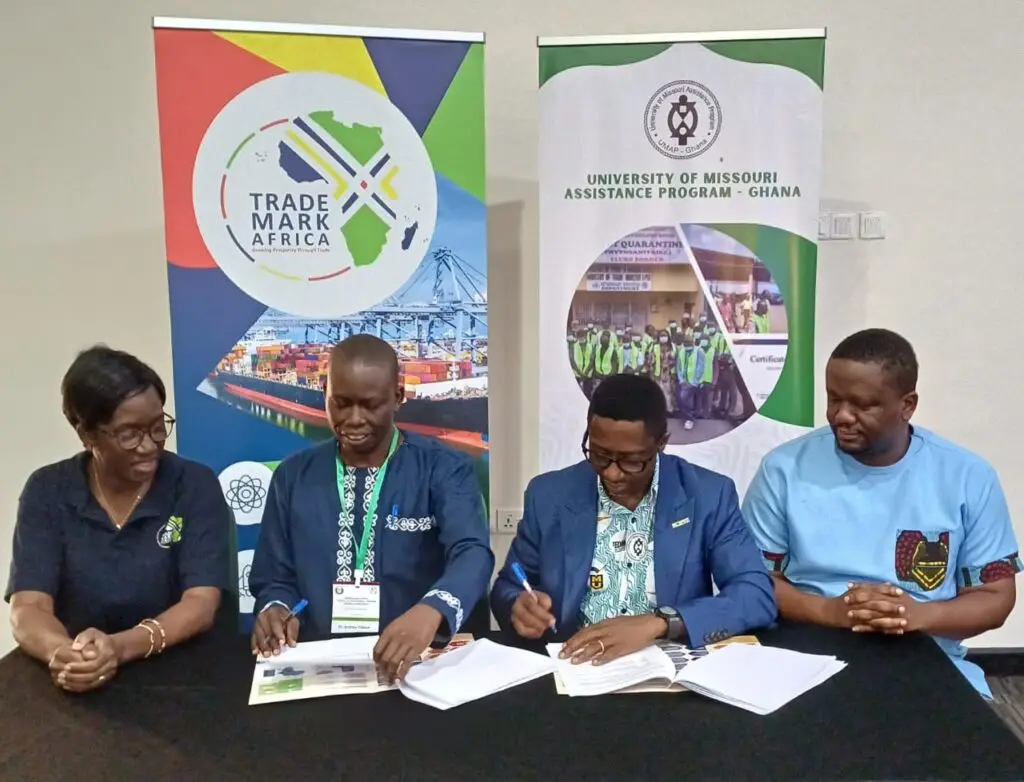
Accra, Ghana. 21 November 2025 – TradeMark Africa (TMA) and the University of Missouri Assistance Program-Ghana (UMAP-Ghana) today formalised a partnership to transform Sanitary and Phytosanitary systems and strengthen quality infrastructure. The MoU will also support harmonisation of standards across ECOWAS Member States. The Memorandum of Understanding (MoU) establishes a framework for deep technical collaboration […]
ECOWAS hosts the East African Community (EAC) in Ghana as Peer Learning Culminates in Action to Strengthen Trade Standards and Systems along the Abidjan–Lagos Corridor

19 November 2025. Accra, Ghana. The ECOWAS Commission and TradeMark Africa, with support from the UK Government through the Foreign, Commonwealth and Development Office (FCDO), have convened the Abidjan-Lagos Corridor Sanitary and Phytosanitary Standards (SPS)/Technical Barriers to Trade (TBT) Forum in Accra, Ghana, to address quality challenges affecting trade competitiveness along West Africa’s busiest trade […]
HoBIS 2025 Strengthens Market Pathways for Tanzania’s Horticulture Sector
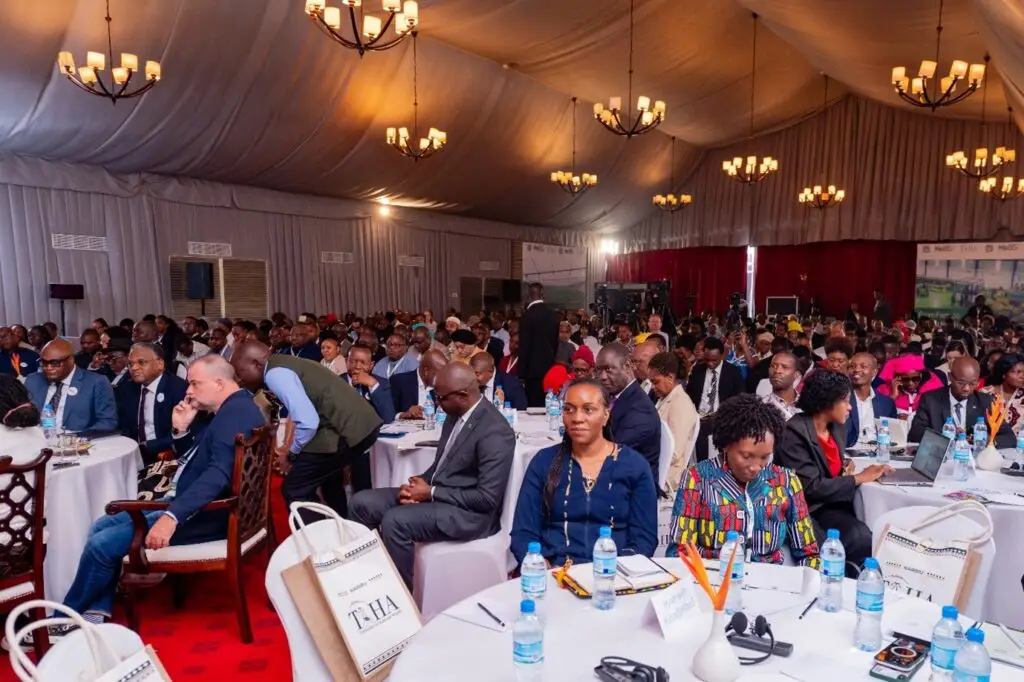
Dar es Salaam, 18 November 2025: Tanzania’s horticulture sector is shaping a more predictable and commercially viable future for farmers and agribusinesses as coordinated reforms and targeted investment strengthen market access and improve compliance systems. This direction was evident at the Horticulture Business and Investment Summit, HoBIS 2025, where over 400 growers, exporters, policymakers, financiers […]
TMA Strengthens Southern Africa Presence with Zambia Oversight Committee Meeting

Left: Mrs Lillian S. Bwalya, Zambia Permanent Secretary for Trade and Commerce, and (Right) Ms Hope Situmbeko, TMA’s Head of Southern Africa. TradeMark Africa has taken a firm step southward as this week in Lusaka, it convened the second Zambia National Oversight Committee meeting, which is an inflection point as the organisation anchors its presence […]
DRC Launches UK-Funded Initiative to Improve Trade Information and Border Transparency
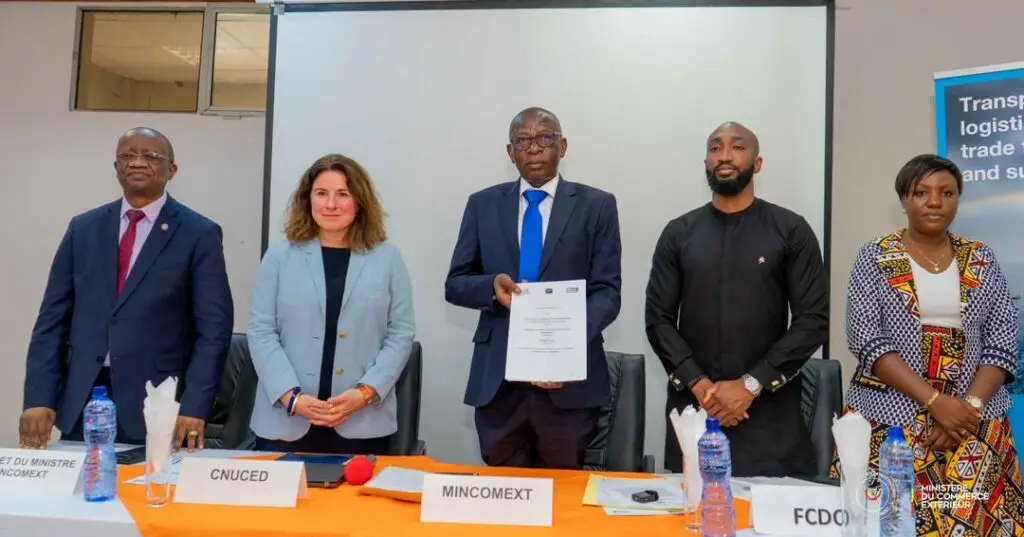
Kinshasa, Democratic Republic of Congo, 10 November 2025: The Democratic Republic of Congo has rolled out a UK-funded initiative to improve the clarity and predictability of trade procedures for thousands of Congolese traders who depend on cross border markets for their livelihoods. The project, “Facilitating Trade in DRC through the Development of a National Trade […]
COUNTY COMPETITIVENESS INDEX (CCI) 2024 LAUNCHED
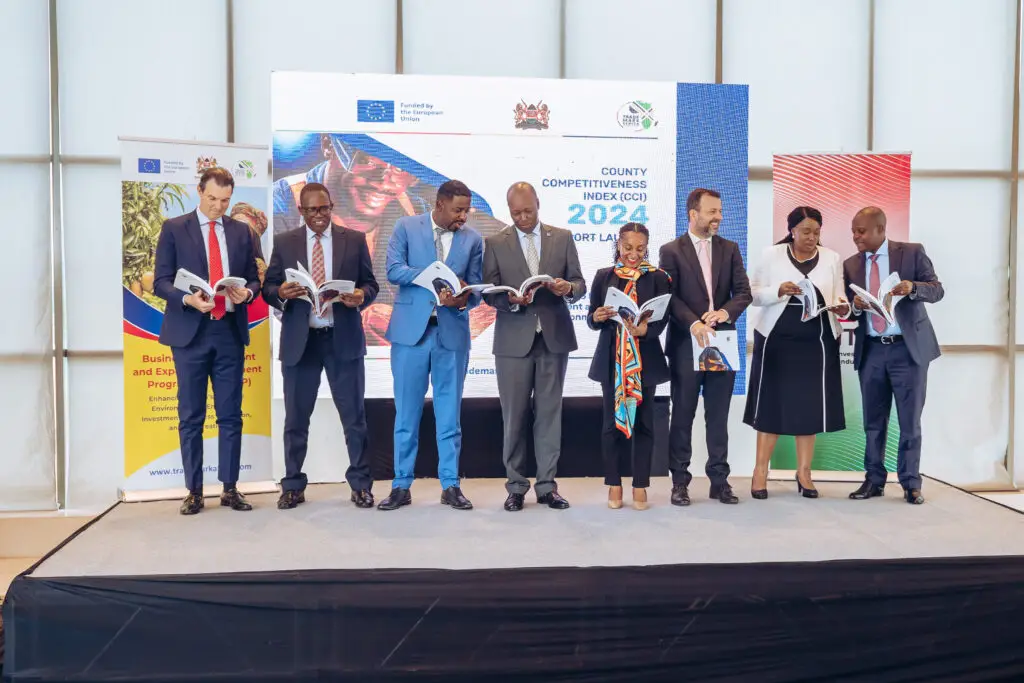
Nairobi, Kenya. 31 October 2025 The Ministry of Investments, Trade and Industry (MITI) has officially launched the County Competitiveness Index (CCI) 2024 Report, aimed at enhancing Kenya’s competitiveness and fostering balanced regional development. Kenya has launched its first-ever County Competitiveness Index (CCI), a data-driven tool that ranks all 47 counties on their investment and business […]

